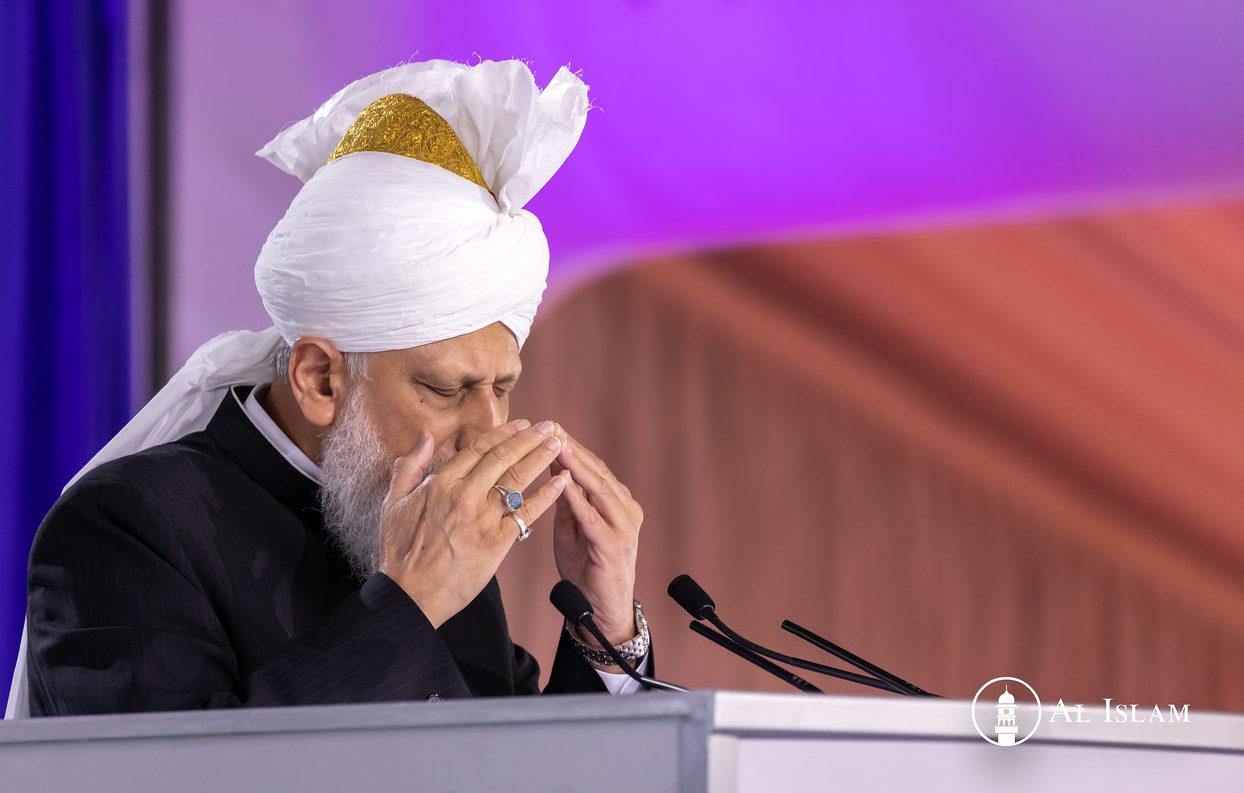Is God a Human Invention?
The fundamental argument of atheism is that God is a myth. It is said that the concept of God, which is the basis of all religions, is the creation of man. This argument, however, is void of reason. Not being a place for a detailed discussion, it should, however, suffice to say that everything that begins to exist must have a cause preceding it. It is totally foolish to say that something began to exist all by itself. Hence, this universe not being eternal, had to be preceded by its Creator.
Moral Degradation
In the contemporary world, man has reached a high standard of achievement in material progress. Nevertheless, there is a growing restlessness and fear.
Why is there no peace? It is because man is ignoring his responsibilities as a social being. He is so selfish that he even does not hesitate to usurp the rights of others for his goals. This moral degradation of man is resulting in prevailing restlessness in society.
Love of God Creates Love for His Creation
In a God-less society, it is impossible for man to discharge his duties towards his fellow inhabitants in a proper way.
Man begins to respect other men out of his respect and the obligation owed to his Creator. One can, therefore, say that it is the love of God which is transformed into the love for His creation. It is a very naive philosophy that man can live without God. The vaccum created by the non-existence of God is suddenly filled by man’s ego. Hence, selfishness grows stronger and all powerful. Thus, societies which are built with the bricks of such individuals, always remain egoistic and self-oriented.
There is no logic left in being beneficial to others without an ulterior motive. There is no external reference point left in the form of a beneficent God, who is the only binding and meeting point of all forms of creation.
Life After Death and Accountability: The materialistic philosophy visualises life as only a short span of consciousness, which comes to an end at the moment of death. In such a society, man has only this short life to live.
This exactly has been mentioned in the Holy Quran as the essence of the materialistic society. The disbelievers declare:
There is no life other than our present life; we shall die here and it is only here that we shall live and we shall not be raised again. (23:39)
To say that man is accountable to the society will not do away with the problem. The crimes against society are only adjudged as crimes when it is established beyond doubt that a crime had been committed. There is the possibility of the miscarriage of justice.
Hence, in society already given to incontinent pursuit of pleasure, the conscious rejection of God and the Hereafter brings the process of moral decay to a rapid head.
Seeking the Pleasure of God: Addressing man’s natural urge to earn appreciation, religion proclaims that every act of righteousness will be rewarded. Islam creates a consciousness in man that appreciation by God is all that matters and should matter. This also obviates the urge for showing-off one’s good deeds to merit applause from human observers. It is more than sufficient for a true believer that all his deeds are in the knowledge of the All Seeing God. The Holy Qur’an states:
Then whoso will have done an atom’s weight of good will see it had been noticed by God and whoso will have done an atom’s weight of evil will also see it had been noticed by God. (99:8-9)
Religion Versus Man’s Moral Compass
Do we really need religion to create a peaceful society? Is man’s moral sense not enough to serve the requirement?
Qur’an attests to the fact that man has been given a basic understanding of what is right and what is wrong. It says:
And He revealed to it what is wrong for it and what is right for it. (91:9)
But, this does not prove the superfluity of religion anyway. A further analysis will again confirm the need of religion to create a moral society.
Free Will: There is no doubt that man’s freedom to act against his instinct has made him to forget the moral values almost completely. This can be witnessed in the societies where there is no proper definition of good and evil. One person’s right may be another person’s wrong. Hence, no man can claim to have completely preserved his moral sense. Now, should man not be reminded of his forgotten instinct? This is what religion does. Qur’an states:
And We have sent down to thee the Reminder (Qur’an) that thou mayest explain to mankind (16:45)
Religion Fosters the Morality of Man: Every man is born with moral qualities but in their simplest forms. As a man gets swayed by the things around him, the environment can both contribute to stimulating or annihilating those qualities. The religious practices are so well designed to stimulate and foster those basic moral qualities of man. For instance, to sympathise with a starving person is a moral quality. However, this feeling is intensified when one fasts and actually perceives the severity of hunger. Thus, religion elevates the morality of man from its stage of infancy to a stage of maturity.
Why are All Religious People not Moral
We see that even in societies where the belief in God is an integral part of faith, evil flourishes. Then how can we say that the belief in God will serve to create a moral society?
This is because such beliefs are only academic in nature and are never translated into responsible moral behaviour. Hence, just a remote theosophical belief in a God cannot influence the social behaviour of such so called believers. Only a true and genuine belief in a living God transforms human behaviour.
Islam Presents a Living God
God that Islam presents is a Living God Who still listens and manifests His signs upon his righteous servants as He did in the past. The Holy Qur’an states:
Allah – there is no God but He, the Living, the Self-Subsisting and All Sustaining (2:257)
The intense desire of the founder of the Ahmadiyya Muslim Community, the Promised Messiah (as) for the people to recognise their Creator, is evident from his words. He says:
“How unfortunate is the man who does not know that he has a God Who has power to do all that He wills. Our paradise lies in our God. Our highest delight is in our God for we have seen Him and have found every beauty in Him. This wealth is worth procuring though one might have to lay down one’s life to procure it. This ruby is worth purchasing though one may have to lose oneself to acquire it. O ye, who are bereft! Run to this fountain and it will satisfy you. It is the fountain of life that will save you.”(Noah’s Ark)
Without God, There Can Be No Peace
Without returning to God one cannot attain peace and without that peace, peace in the society cannot be built. All human efforts to create peace from selfish ulterior motives are bound to fail and come to nothing. If there is no God, there is no peace. That is the ultimate wisdom.












0 Comments